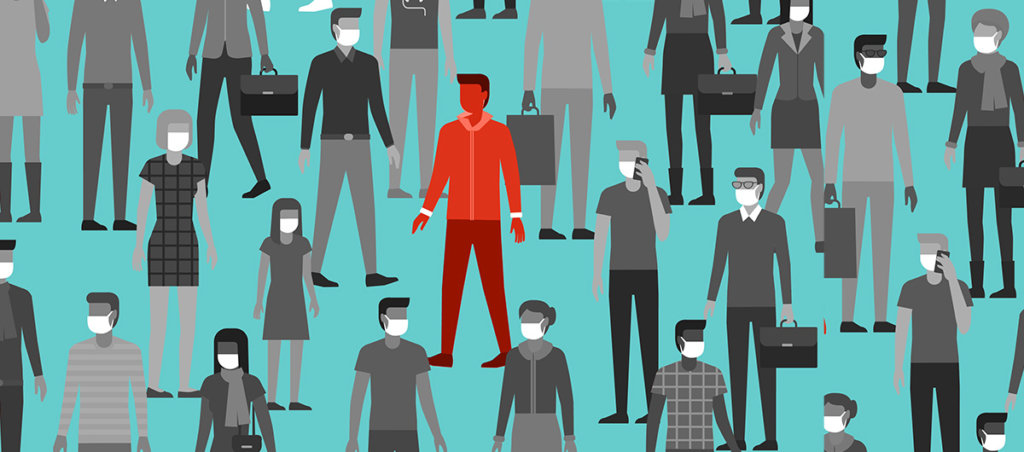But collective responsibility just might.
This article was made possible because of the generous support of DAME members. We urgently need your help to keep publishing. Will you contribute just $5 a month to support our journalism?
Personal Responsibility. It’s an idea cherished by the Right, and often nodded to by those on the nominal Left who wish to appear “reasonable” to those they imagine are “reasonable” on the Right. What they are talking about when they talk about “personal responsibility” isn’t just the general idea that people should act responsibly and brush their teeth and not walk into traffic, but rather that every person is responsible for themselves and not to each other. It’s the idea that any help given to anyone else is a disservice, because it will cause them to not know how to take “personal responsibility” for themselves and thus leave them unable to survive. Like house cats left in the wild.
Many Americans like to believe that our traditions of “personal responsibility” and “rugged individualism” are what make the American Dream possible. That as long as you work hard and make the right sacrifices, you will be able to enjoy a good life, relatively protected from disaster.
In actuality, the United States ranks 27th in socio-economic mobility, right below Lithuania. Rather than create legions of lazy citizens who don’t feel like they have to strive for anything better, welfare states around the world have created societies where everyone has more ability to strive for something better. Or just be okay where they are, if that is what they want to do.
Still, these terms have become verbal talismans, protecting those who repeat them endlessly from being ruined by things out of their control. It may seem like it’s easier to blame “the system” than it is to blame oneself, but if everything bad or good that happens to anyone is entirely their own fault, then we are all entirely in control of our own destinies. If it’s systemic … well, that’s harder to fix.
But if there is anything the coronavirus pandemic should teach us—other than the fact that the people least likely to have access to health care, child care, sick leave, and the like, are also the people who have the most power to tank our entire economy when they are unable to work—it is that this notion of “personal responsibility” is completely irresponsible. It only makes sense in a world where our behavior has no effect on anyone else’s lives and where everyone is not only equally “responsible,” but equally able to be “responsible.” We do not live in that world. Nobody does.
Imagine how much better prepared we would have been if we’d just invested in a subsidized national health care system for all, if we’d invested in educating doctors and nurses and building hospitals and clinics all along. We’d already have the infrastructure we’re now struggling to create out of nothing. Instead, we’ve been throwing absurd amounts of money, for years, at a for-profit health-care system to enrich a small cohort of people. Instead we have lawmakers like Sen. Rand Paul (R-KY) holding the passage of a desperately needed coronavirus relief bill that will, among other things, provide free coronavirus testing for everyone, two weeks of paid sick leave and family and medical leave, and expand Medicaid. He insists on including an amendment—one that Senate Minority Leader Chuck Schumer has dismissed it as “ridiculous” and a “colossal waste of time”—requiring, among other things, a Social Security number for purposes of the child tax credit, and to provide the president the authority to transfer funds as necessary.
Imagine if we already had subsidized child care so that those whose jobs are deemed essential could continue going to them when schools were canceled; if we didn’t have at-will employment so those who can’t go to work could know that their jobs would be there for them when this is over; if we already had sick leave; if those working minimum-wage jobs had been earning a living wage and were more able to save a little bit; if we had a more solid safety net in general.
That’s what true responsibility is. Not this idealistic, pie-in-the-sky belief that our “everyone for themselves!”–style system could hold.
At the risk of sounding trite: We live in a society. You can be the most “personally responsible” human in the world. You can work hard, never take a day off, pay all your bills on time, pay your health insurance premiums, exercise daily, eat nothing but health food … only to walk into a Dunkin’ Donuts and get coronavirus or some other contagious illness from someone else. If the people who prepare your food face financial ruin by taking a sick day, if they don’t have health care because we consider it a privilege not a right, then it doesn’t actually matter how personally responsible you have been. You can still get sick because they weren’t able to get well. You can also get screwed financially if the insurance company you paid every month decides you didn’t really need some of the health care you got.
Personal responsibility, bootstraps, and rugged individualism won’t save you from that. Collective responsibility, however, just might.
As this crisis unfolds, more and more of us are beginning to understand this. Most of us get that testing and treatment needs to be subsidized, because we get how that makes all of us all safer. Many of us are even learning that the whole “That all sounds nice, but where will we get the money from? Thin air?” argument just may have been bullshit all along. Let’s hope that those of us who have taken away these lessons will be able to apply it to everything else in life once we recover and emerge from the morass.
